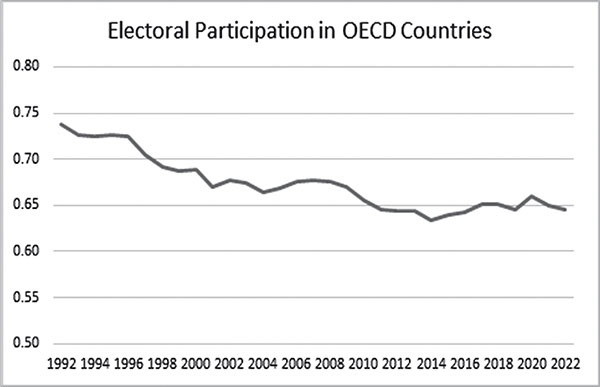
Slovakia’s Prime Minister Robert Fico was shot in an assassination attempt on 15 May 2024. The assailant, Juraj Cintula, a 71-year-old man reported by media as a writer and a poet was promptly apprehended. The Slovak Interior Minister later said that Cintula told during interrogation that he disagreed with the prime minister’s policies and decided to act.
World leaders condemned the attack and European Commission President Ursula von der Leyen reacted to the incident by asserting that such acts of violence undermine democracy and there was no place for them in European society. Nevertheless, political violence has already made its way into the European society.
Violent protests and riots as well as police brutality against peaceful protesters are not that rare in developed nations that are the proponents of civil rights and freedom of speech.
After the First World War, US President Woodrow Wilson (1913-21) made the worldwide promotion of democracy and peace the focus of US foreign policy.
The United States is still maintaining that role. But what about the condition of democracy at its home? The US and other OECD countries have a reputation for being strong democracies. These countries possess a civilised democratic culture. The question of rigging an election never arises. The loser routinely concedes defeat and congratulates the winner.
However, in the 2020 election in the USA, Donald Trump claimed that the election was stolen and even tried to overturn people’s mandate by orchestrating an insurrection. The USA is heading for presidential elections this year, and Trump is the presumptive Republican presidential candidate.
He has already declared in an election campaign rally that if he is not elected then there will be a bloodbath in the country. Is it a reversal of culture or just the idiosyncrasy of Donald Trump? Is democracy on the downslide?
An article from Politico published on 21 May questions whether it is too late to take steps to strengthen democratic engagement among Europe’s youth.
It mentions that multiple surveys indicate that dependable support for democracy in Europe is presently running low and it appears that public endorsement of democracy will further decline.
If we observe the electoral participation or voter turnout for the last three decades in the OECD countries, an overall declining trend emerges as shown below.
The Global Decline in Democracy
The Economist Intelligence Unit (EIU) has been assessing the quality of democracies around the world every year since 2006.
Their method involves creating a Democracy Index that scores countries on a scale of 0 to 10. To calculate this score, they analyse 60 different factors grouped into five main categories: how elections are conducted, the level of civil liberties, how well the government functions, how citizens participate in politics and the overall political culture.
The following chart shows a clear declining trend of the world average of democracy indexes over the last decade from 2014 to 2023.
The Global Decline in Democracy
The decline of democracy is mostly driven by the lack of electoral integrity, economic challenges, political corruption and an increasing distance between leaders and the people.
Last year, several members of the European Parliament were apprehended for corruption.
In 2021, former French President Nicolas Sarkozy was convicted of corruption and sentenced to prison. South Korea’s former President Park Geun-hye was sentenced to 24 years for corruption. Former Italian Prime Minister Silvio Berlusconi was convicted of tax fraud.
These are all bona fide democracies. Naturally, corruption among leaders erodes trust in them and democratic institutions, leading to disenchantment with democracy. Moreover, economic disparities and the perception of leaders’ indifference to people’s concerns fuel anger and resentment, contributing to an environment conducive to democratic backsliding.
If people continue to disengage themselves from democratic processes, then authoritarianism and extremism will gradually fill this void. Authoritarians and extremists may gain easy popularity by promising to punish the corrupt, clean up the system and liberate people from economic woes through measures that have been lacking.
They could also promise to address major concerns that current leaders are ignoring. Europe is already seeing a surge in the popularity of the far right. As reported by the Los Angeles Times, groups of people paid respect to the fascist leader Benito Mussolini on the 79th anniversary of his execution by marching through Italian towns and delivering fascist salutes on 28 April.
Leaders of the democratic world have to perceive the gravity of the situation and the need for action. The weakening of democracy would inevitably lead to the spread of authoritarianism and extremism, ultimately undermining human rights. The decline of democracy must be contained for the overall benefit of people worldwide.
__________________________________________________________
The writer is a former corporate professional and academic

